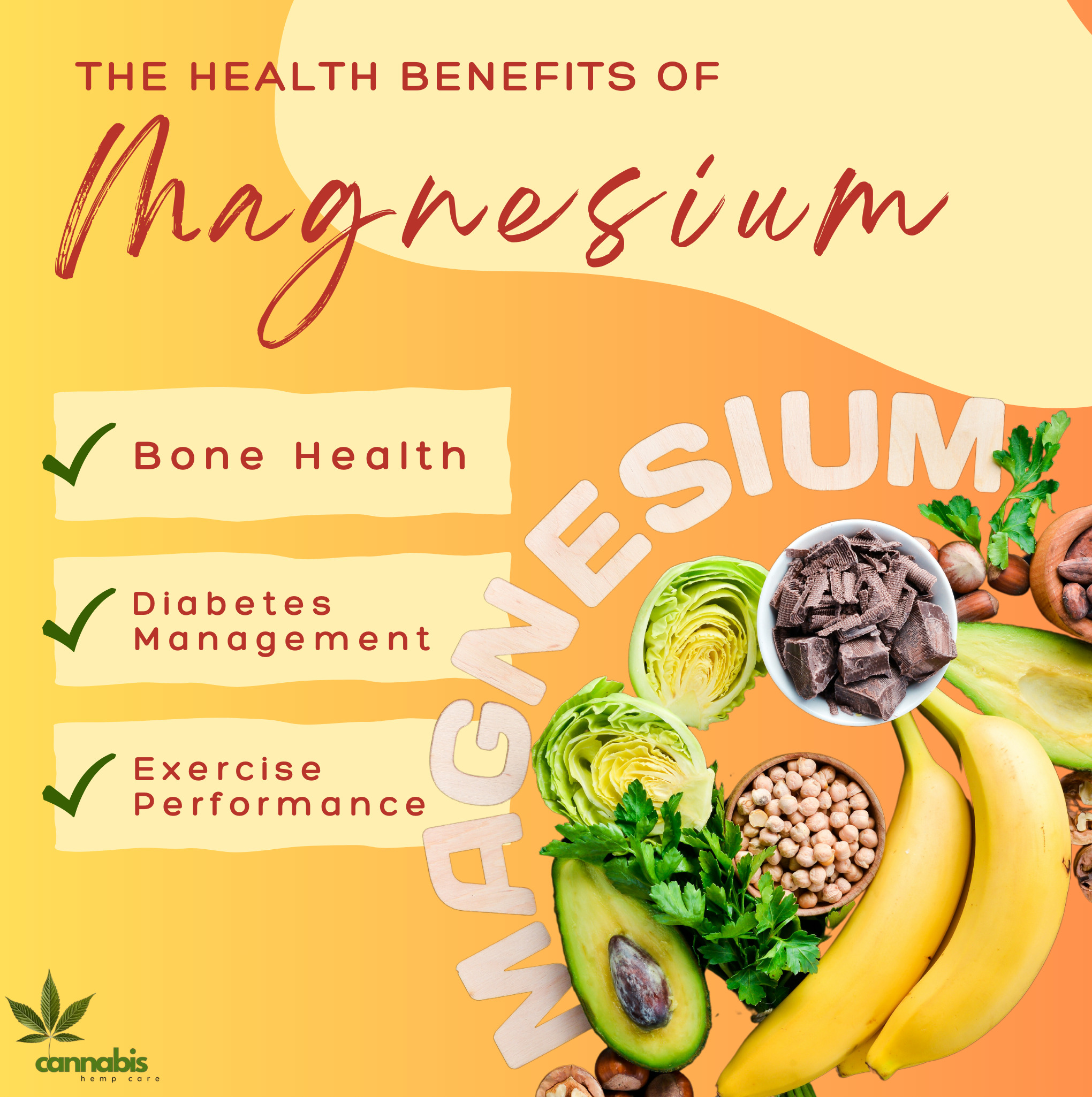Magnesium is an alkaline earth metal and ranks as the ninth most plentiful element in the universe. It is produced in large stars due to the fusion of helium and neon.1 During supernovas, magnesium is formed by combining three helium nuclei with a single carbon nucleus.
Magnificent Magnesium: A Vital Mineral
Magnesium is an essential mineral that is present in every cell of our body. It is predominantly stored in our bones, accounting for 60% of the body’s total magnesium content. The remaining 40% is distributed among muscles, soft tissues, and bodily fluids.
This mineral plays a significant role in our body as it is involved in over 300 enzyme systems. These systems control various biochemical reactions, including protein formation, muscle and nerve functionality, regulation of blood sugar levels, and blood pressure management.2 Additionally, magnesium is necessary for energy production processes such as oxidative phosphorylation and glycolysis.
The Role of Magnesium in Nature and Nutrition
Magnesium is a vital nutrient for both animals and plants and can be found in numerous foods we consume and many everyday products. The metallic ion is at the heart of every chlorophyll molecule, making it a crucial component for photosynthesis.
In our bodies, magnesium plays a role in hundreds of biochemical reactions. On average, an individual needs between 250 to 350 mg of magnesium daily, which amounts to about 100 grams of magnesium per year.
The Health Benefits of Magnesium

Bone Health
Magnesium directly and indirectly enhances the health of our bones by managing the levels of calcium and vitamin D, two other essential nutrients for maintaining bone health.
Diabetes Management
Diets high in magnesium have been linked to a decreased risk of developing type 2 diabetes. This could be due to the significant role that magnesium plays in regulating glucose and insulin metabolism. A lack of magnesium can make insulin resistance,3 a condition that frequently precedes type 2 diabetes, worse.
Exercise Performance
Magnesium can enhance workout performance. It helps in transporting blood sugar to your muscles and eliminates lactate, a substance that accumulates during exercise and leads to fatigue. Research indicates that magnesium supplements can be especially helpful in boosting exercise performance in older individuals and those who are deficient in this mineral.
Sources of Magnesium
Despite its essential role in the body, a lot of people don’t consume enough magnesium in their diet. Foods that are high in magnesium encompass almonds, spinach, cashew nuts, leafy green vegetables, seeds, and beans. If an individual is unable to meet their magnesium needs through diet alone, their healthcare provider might suggest taking magnesium supplements.
Foods High In Magnesium
Magnesium is a mineral that can be found naturally in a variety of foods. Here are some foods that are rich in magnesium:
- Nuts and Seeds: Almonds, cashews, flaxseeds, peanuts, pumpkin seeds, and chia seeds are all high in magnesium.
- Legumes: Magnesium-rich legumes include black beans, edamame, and lima beans.
- Whole Grains: Whole grains like quinoa and shredded wheat are good sources of magnesium.
- Dairy Products: Nonfat milk is a notable source of magnesium.
- Dark Chocolate: Consuming a 1-ounce serving of dark chocolate can provide 15% of the daily value for magnesium.
- Avocados: A medium-sized avocado can provide 14% of the daily value for magnesium.
- Leafy Greens: Leafy green vegetables like spinach are packed with magnesium.
- Bananas: Bananas are also a good source of magnesium.

Magnesium in Industry
Magnesium metal is most commonly used in combination with aluminum to form an alloy. This alloy is lighter, more robust, and more malleable than aluminum alone. China is the primary source of magnesium, accounting for approximately 80% of the global supply.
Symptoms
A deficiency in magnesium also referred to as hypomagnesemia, can lead to a range of symptoms. The following are some common signs associated with a lack of magnesium:4
Initial Indications:
- Feeling of sickness
- Throwing up
- Lack of hunger
- Tiredness
- Feebleness
Additional Symptoms:
- Muscle twitches, shakes, and cramps5
- Rigidity
- Irregular heartbeats
- Mental health issues such as indifference (marked by a state of emotional numbness or absence of feelings)
- Increased susceptibility to stress, depression, and anxiety
If left untreated, a magnesium deficiency can result in more serious symptoms such as:
- Sensations of numbness and prickling
- Changes in personality
- Convulsions

Supplements
Magnesium supplements can be a beneficial addition to your diet if you’re not getting enough of this crucial mineral from your food. Here are some different types of magnesium supplements:
- Magnesium Citrate: This is a popular type of magnesium supplement often used for its laxative properties.
- Magnesium Oxide: This non-chelated form contains a high amount of elemental magnesium and is commonly used to alleviate heartburn and indigestion.
- Magnesium Glycinate: This chelated form of magnesium is known for its high absorption rate and bioavailability, making it ideal for addressing long-term deficiencies.
- Magnesium Chloride: This form offers decent bioavailability compared to oxide and is also available as an oil for topical application.
- Magnesium Lactate: This form is typically used to manage digestive issues and tends to be more easily absorbed than some other forms.
Recommendation
The daily intake of magnesium that is recommended, known as the Recommended Dietary Allowance (RDA), differs based on one’s age and gender. Here are the suggested daily amounts:
- From birth to 6 months: 30 milligrams (mg)
- From 7 to 12 months: 75 mg
- From 1 to 3 years: 80 mg
- From 4 to 8 years: 130 mg
- From 9 to 13 years: 240 mg
- From 14 to 18 years: 410 mg for males and 360 mg for females
- From 19 to 30 years: 400 mg for males and 310 mg for females
- From 31 to 50 years: 420 mg for males and 320 mg for females
- For those aged over 51 years: 420 mg for males and 320 mg for females
For pregnant individuals who are aged 18 or older, the daily requirement increases to between 350 and 360 mg. However, these recommended dosages can vary depending on individual needs. It’s always advisable to consult with a healthcare provider to determine the suitable dosage based on your specific requirements.

Final Words
Magnesium is a vital mineral that plays a crucial role in our bodies. It’s involved in over 300 enzyme reactions, contributing to the health of our bones, regulation of glucose and insulin metabolism, and enhancement of exercise performance. Despite its importance, many people do not get enough magnesium in their diet.
Foods rich in magnesium include almonds, spinach, cashew nuts, leafy greens, seeds, and beans. For those who cannot meet their magnesium needs through diet alone, supplements are available in various forms. However, it’s always best to consult with a healthcare provider before starting any supplement regimen. Understanding the importance of magnesium and incorporating magnesium-rich foods into our diet can help us maintain our health and well-being.
FAQs
Sources
- Marie, Anne. “Interesting Facts about Magnesium.” ThoughtCo, ThoughtCo, 2 Jan. 2014, www.thoughtco.com/interesting-magnesium-element-facts-603362. Accessed 25 Oct. 2023. ↩︎
- Ware, Megan. “Magnesium: Health Benefits, Deficiency, Sources, and Risks.” Biggers, Alana. “Magnesium Deficiency: Symptoms, Signs and Treatment.” Www.medicalnewstoday.com, 20 June 2018, www.medicalnewstoday.com/articles/322191. Accessed 25 Oct. 2023.ct. 2023. ↩︎
- “12 Magnesium Health Benefits.” Healthline, 7 Feb. 2022, www.healthline.com/nutrition/magnesium-benefits. Accessed 25 Oct. 2023. ↩︎
- Biggers, Alana. “Magnesium Deficiency: Symptoms, Signs and Treatment.” Www.medicalnewstoday.com, 20 June 2018, www.medicalnewstoday.com/articles/322191. Accessed 25 Oct. 2023. ↩︎
- “Feeling Fatigued? Could It Be Magnesium Deficiency? (and If So, What to Do about It!).” Health Essentials from Cleveland Clinic, 6 Feb. 2019, health.clevelandclinic.org/feeling-fatigued-could-it-be-magnesium-deficiency-and-if-so-what-to-do-about-it/. Accessed 25 Oct. 2023. ↩︎




































